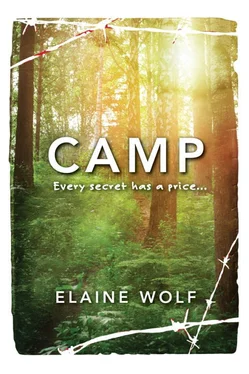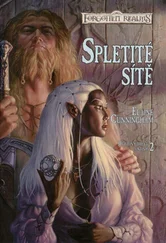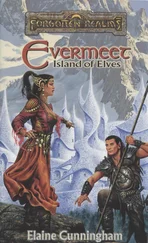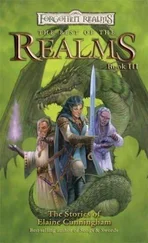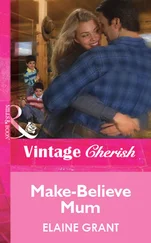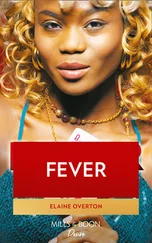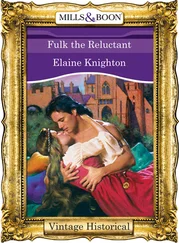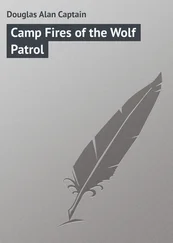My father noticed too. One night when we sat at the kitchen table and tried to ignore Charlie’s place, Dad told us the accounting firm he worked for had opened a small office in New Haven. They needed one more man there, he said. So my father had volunteered. We were moving to Connecticut. “A new start,” he explained, tears shining in his eyes. “And for God’s sake, we need it.”
“Okay,” I said, because, really, what difference did it make where I lived?
Without a word, my mother got up to clear the pizza from the table.
“Sonia, a new start, Sonia,” my father said again. He stood to hug her. I watched my mother stiffen, the way she had with Uncle Ed. But this time, I understood why she froze. If my mother would let anyone in—even her husband—she might feel. And if she felt, she might finally break.
No outer world in; no inner world out. Everything in its place, including our grief.
We moved to Connecticut in March, to a two-bedroom house with a postage-stamp lawn. No need for a third bedroom when no one would fill it. No use for a yard when no one would play there. It didn’t matter that my new room was small. I’d packed only my clothes, a few letters I’d saved, and some photographs—a thin album of pictures I had snapped with Charlie’s camera and a few loose photos in an envelope. Before we moved, Erin sent me the picture she had taken on visiting day: Charlie and me at the campcraft area. I put it in the envelope, along with the photo of Charlie standing by the tower we’d built on the morning I left for camp.
Again my father urged me to call Erin. “I know you’d like to thank her for the picture,” he said, suggesting I might want to talk to her and hinting that I should. But after Charlie died, I started thinking that my father always believed he knew what I wanted, just like when he told us about Takawanda. “Of course you want to go to camp,” he had said. “Who wouldn’t want eight weeks by a lake in Maine?”
I don’t, I had tried to tell him. But my father hadn’t listened. If he would have heard me and not sent me to Takawanda, then Robin might never have teased me about my mother, and I wouldn’t have pulled out that stupid metal box. And then Charlie would still be alive. So even though my mother and I had killed him, my father shared the blame. He just didn’t know it—didn’t know much of anything, I decided after Charlie died.
I stopped agreeing with everything my father said, and I didn’t call Erin. The sound of her voice would have wormed through my heart. And if I felt, then I too might break. So I just sent a note, formal and stiff, and convinced myself that Mrs. Hollander would read the missing words. I counted on her to tell Erin that part of me had died with Charlie: the part that welcomed an arm on my shoulder; the part that knew how to love. Mrs. Hollander would realize I had shut myself down. She’d explain that to Erin, I wanted to believe. And then Erin would know why I couldn’t be her friend. Couldn’t be anyone’s friend, in fact. Just being was hard enough.
I packed one more thing for the new house: Charlie’s wooden blocks, safe in a carton with my name on it. My father didn’t ask where they were when he emptied Charlie’s room. Yet he had to see the naked shelves, where the rectangles, squares, and triangles belonged. But my father didn’t need an accounting of items, and my mother wouldn’t ask for one now. The requirement of perfection no longer ruled our lives.
Charlie’s blocks weren’t the only things missing from their assigned places. The week before we moved, I tucked my porcelain dogs and Russian dolls into a box marked “Salvation Army.” Then I threw Puppy into the trash.
My new school was not very different from my old: the same types of kids and the same kinds of cliques. I didn’t worry about fitting in, didn’t want to, in fact. Easier to keep to myself. Easier not to get close, not to let anyone ask if I had brothers or sisters, where we moved from and why. Easier to be like my mother, I found. Like mother, like daughter, we twinned in our grief.
My father tried to keep us going. On his way home from work, he’d buy something for dinner. We ate at our new kitchen table—barely large enough for three chairs. My father might have thought our sorrow would shrink if we didn’t see an empty seat. But in this little space, our pain began to swell. And the longer we didn’t speak of Charlie, the more his presence grew. After a while, his ghost filled the new house. There was no room for outsiders.
It didn’t matter, though. We had no friends, no visitors— except Uncle Ed and Aunt Helen. They came to see us one Sunday about a month after we moved. My father greeted them outside, then ushered them into the living room, where my mother and I positioned ourselves because my father had reminded us they were family after all.
“Robin sends her love,” Uncle Ed said. He opened his arms to my mother, who stepped back, next to me. My uncle’s arms fell to his sides as he studied her, a statue in the beige dress that used to gently hug her body. Now it billowed like a poor hand-me-down.
Uncle Ed brushed his palms through his hair. “What I was saying is Robin’s sorry she couldn’t come with us. You know how teenagers are,” he went on with a wink. “So many friends. So busy on the weekends.”
“Well anyhoodle,” Aunt Helen said, “it’s nice to see you. And what a cute little place you’ve got here.”
My mother and I escaped to the kitchen. I opened the box of “company cookies” my mother kept, just in case. She put on the coffee. I remember watching her in that too-big dress, a slip peeking out from the bottom. Sonia Becker, not perfect anymore.
But what I remember most about the year after Charlie died is the silence. It made the air too dense to breathe. And something else too: By the end of the school year, all my mother’s clothes were too big. My father wanted to take her shopping. “What do I need clothes for?” She asked. Six words. The longest sentence I had heard my mother speak in a while.
Sometime after that, my father called the doctor. And sometime later, the cancer was confirmed.
I tried not to sleep that night, tried to focus on the sounds from my parents’ room. Crying—both of them—for what seemed too long. I was sorry I’d thrown Puppy away. I wanted to clutch my stuffed animal, to hold childhood one last time. I pulled myself into a ball and listened to my parents’ hushed voices, listened far into the night until sleep finally grabbed me. And when I awoke and padded to the bathroom, I heard something I didn’t remember ever having heard before: the sighs and moans and whispers of my mother and father loving each other.
Chapter 20
Tell Me What Happened

My mother started talking to me the next day. It was as if she had chosen, finally, to strip off her armor. As suddenly as that, she let the past out and let me slip in.
I would come home from school, junior year, and prop the pillows under her head. My mother lay on the sofa in the living room. The pink robe my father had bought swirled around her tiny frame, which shrunk even more with each treatment.
My mother would greet me with a smile, lips barely curled. I knew she was trying to say she was sorry. Sorry she locked me out of her life. Sorry she never hugged me. She didn’t say those words, of course, but her apology warmed me all the same.
Читать дальше
